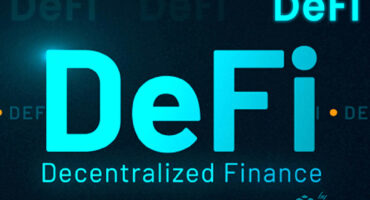Meme Season: the hype behind PEPE Token.
What is so special about $PEPE? $PEPE is a meme...

Docy turns out that context is a key part of learning.






The European Union took a major step Wednesday toward setting rules — the first in the world — on how companies can use artificial intelligence https://t.co/H5qLrqByxZ pic.twitter.com/6f184erC0f
— CNN (@CNN) June 15, 2023
One of the key areas where AI has made significant contributions to cryptocurrencies is in trading. AI-powered trading algorithms can analyze market trends, historical data, news sentiment, and social media feeds to make informed decisions about buying, selling, or holding crypto assets. These algorithms can execute trades at speeds and volumes that surpass human capabilities, leading to increased efficiency and liquidity in the market.
Moreover, AI can assist in fraud detection and prevention within the cryptocurrency ecosystem. By analyzing transactional patterns and identifying suspicious activities, AI algorithms can help detect fraudulent transactions, protecting investors from potential scams and enhancing the overall security of the cryptocurrency market.
Another area where AI is revolutionizing cryptocurrencies is in the field of smart contracts. Smart contracts are self-executing agreements with predefined conditions, and AI can enhance their functionality by automating the verification and execution processes. AI algorithms can assess the conditions and outcomes of smart contracts, ensuring accuracy, transparency, and trust in decentralized DeFi transactions.
Furthermore, AI-powered chatbots and virtual assistants are being deployed in the cryptocurrency industry to provide real-time customer support, answer queries, and facilitate transactions. These chatbots can leverage natural language processing and machine learning techniques to understand and respond to user inquiries, improving user experience and accessibility.
OpenAI, the U.S.-based company known for the popular ChatGPT application, has recently introduced a new version of its software: GPT-4, which OpenAI claims is 1,000 times more advanced than previous versions. The main improvement lies in the software’s search functionality, which now allows images to be included in addition to text. The initial release of the original ChatGPT version of OpenAI in November last year caused a significant change in the AI landscape. Consequently, several cryptographic AI tokens have experienced significant price spikes driven by market enthusiasm, generating something similar to the hype created by the meme season tokens we discussed in a previous article.
Apart from cryptocurrency trading, the potential technological use cases for AIs are multiple and cover a wide range of areas, such as the following:

Artificial Intelligence (AI) involves the emulation of human intelligence in machines programmed to perform tasks that typically require human intelligence. It encompasses the creation of computer systems or algorithms capable of analyzing, interpreting, learning from data, and making decisions or predictions based on such analysis. AI encompasses diverse subfields such as machine learning, natural language processing, computer vision, robotics, and more.
AI systems are crafted to perceive their surroundings, comprehend information, reason, make decisions, and even interact with humans in a manner that imitates human intelligence. They can be trained to identify patterns, adapt to new circumstances, and continually enhance their performance through iterative learning processes.
Artificial Intelligence (AI) have ceased to be the plot of a futuristic movie to emerge strongly in the present as a fact full of possibilities, but also full of uncertainty and risks in the face of the new paradigm it brings.
Although there is a lot of talk about Artificial Intelligence applied to the creation of complex images from text as in the case of Dall-e or Midjourney, the possibilities of AI are much more extensive and complex than its mere creative use, which, in the realm of music, for example, could include the legendary musician Paul McCartney himself, who has used artificial intelligence (AI) to help create what he calls “the final Beatles record”.
He made the announcement on a BBC Radio program, where he detailed that the AI technology had been used to “pull” John Lennon’s voice from an old demo, so he could complete the song.
Anecdotes aside and beyond creativity and art, Artificial Intelligence (AI) has emerged as a powerful technology that is transforming various industries, and the world of cryptocurrencies is no exception. AI’s ability to analyze vast amounts of data, identify patterns, and make accurate predictions has significant implications for the cryptocurrency market.
Once AIs have entered with force to revolutionize the social and technological landscape, concerns about their possible fraudulent or harmful uses, and about their influence on the labor market and the privacy of individuals, have also skyrocketed. And uncertainty has also grown about how and to what extent AIs will be able to transform the world’s socioeconomic reality in the near future.
In addition, there is concern that AIs will create a generation and even employment gap among users, similar to that generated in the past by the emergence of the so-called “network of networks”: the Internet itself.
Recently, in an open letter published in March, 2023 by the Future of Life Institute, Elon Musk, Apple co-founder Steve Wozniak and a number of other 1000 technology leaders warned that powerful AI systems should only be developed when there is certainty that the effects will be positive and the risks controllable.
More than 1,000 technology leaders and researchers, including Elon Musk, signed an open letter urging a pause in the development of the most powerful artificial intelligence systems, warning that AI tools present “profound risks to society and humanity.” https://t.co/6lEG5DBqOb
— The New York Times (@nytimes) March 29, 2023
In Elon Musk’s own words: “I think AI poses a greater risk to society than cars, airplanes or medicine. We need some kind of regulatory authority or something to oversee development. It’s a pretty dangerous technology, and I’m afraid I’ve done some things myself to accelerate it.”
Artificial Intelligence has also become a popular tool in the world of cryptocurrencies. Its applications in trading, fraud detection, smart contracts, and customer support have revolutionized the industry, making it more efficient, secure, and accessible. As AI continues to evolve, we can expect further advancements in the field, leading to increased adoption of cryptocurrencies and a more robust ecosystem overall. However, it is crucial to monitor the ethical implications and potential risks associated with AI integration to ensure its responsible and beneficial use.

What is so special about $PEPE? $PEPE is a meme...

Within DEXTools app, traders have a unique and handy DE...
